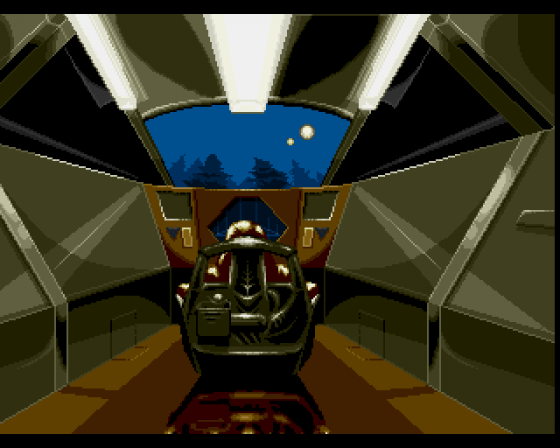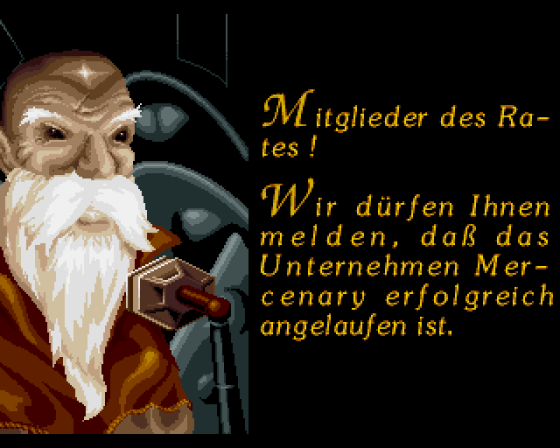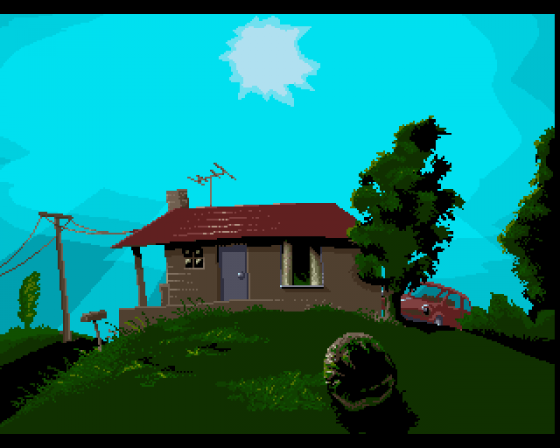
Amiga Power
 1st January 1992
1st January 1992
At last - a wargame for the common man! But what's the biggest surprise - that it looks set to put a hex on average games players, or that it's come from Ubisoft...?
Battle Isle
A favourite catchphrase in the Amiga Power office is "Yikes! A wargame! Call Jonathan Davies!" (how we laugh), but in the interests of horizon-boradening and open-mindedness and that kind of thing, I snatched Battle Isle out of Matt's hands when it appeared and demanded to review it. It wasn't a totally magnanimous gesture designed to save poor old JD from another weekend spent reading instruction manuals though. The word was out that Battle Isle was a wargame for people who didn't like wargames, an action-packed arcade-paced slaughterfest that just happened to have enough tactical and strategic depth to float a battleship on - in fact, it sounded like the first Amiga game since Laser Squad to capture the awesome flavour of that all-time-8-bit-favourite-that-we're-incessantly-plugging-although-nobody-else-in-the-entire-world-knows-what-we're-rattling-on-about, Rebelstar.
Certainly the concept is a loosely similar one - two armies (one player against the computer or two humans competing) challenge each other on one of a series of sixteen islands constructed of hexes, each littered with bases, factories, rivers, mountains and so on. The action is displayed on a vertically-split screen, with each player using one side, and the objective is simply to defeat the enemy by either wiping out all of his forces or destroying his command base.
Victory is achieved by the use of various vehicles from all three traditional branches of the armed forces - air force, army and navy. (You start off with simple tank battles on small islands with no buildings apart from the bases, but as you progress through the levels more and more elements are added until at the end it's a full-scale war). These all have various purposes and capabilities, but they share one common link - whenever they encounter an enemy division, the two units exchange fire in a brief computer-controlled bout of fighting, the outcome of which is displayed in one of the two halves of the split screen.

This will nearly always result in the loss of a few vehicles from each side (a unitis made up of six of the same kind of weapon), but to make sure that the numbers are in your favour, you'll have to plan engagements carefully. The hex layout of the map makes it possible for you to attack enemies with multiple units at once, but beware - it also means that your opponent can do exactly the same to you...
Not Quiet On The Disk Front
So far so good, but sad to report, Battle Isle doesn't quite pull it off. For a game where the emphasis has been put on accessibility and fast pace, it's just too slow to work. Moving uses a dual turns system, whereby in each phase one player moves his units and the other one 'aims' (i.e. decides which of his units are going to take part in that battle) and in the other phase (separated from the first by a round of battles) the positions are reversed. As you might expect, moving takes a lot longer than 'aiming', with the result that in a one-player game you have to spend a lot of time hanging around for the computer to finish its moves.
In one instance, playing on the eighth or ninth level, I found myself twiddling my thumbs for over seven minutes after I'd finished my aiming phase, and only a Canadian Giant Redwood calls that fast-moving action. Also, for some inexplicable reason, the computer accesses the main game disk at some length after each phase. Since the maps never get very bid, and the graphics for the animated battle sequences can't possibly take up much memory, I can't for the life of me see what a machine with 512K of memory has to do this. The only conceivable explanation revolves around the music - the movement phase is accompanied, rather pointlessly, by a passable but quite unnecessary tune which, as it isn't present in the other phase, may be being loaded in and out of memory. If this is the case, it must represent one of the most confused judgements of priorities in the history of games programming - doing away with the disk accessing would double the speed of the game in the earlier levels.
Rolling The Harsh Dice Of Fate
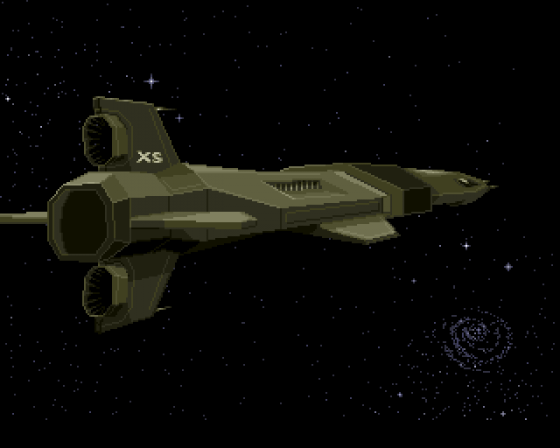
The other major problem with Battle Isle is that, for a strategy game, it appears to rely heavily on elements of pure chance. After you've cleverly manoeuvred yourself into a situation where three of your strongest units are simultaneously attacking a single enemy division from advantageous terrain positions, it's really galling to watch as (seemingly as a sole function of dice-rolling luck) eleven of your eighteen tanks are wiped out for a loss of only one enemy.
The chances of exacting a similarly flukey revenge in your next turn are non-existent too, as each vehicle in a unit only gets one shot per attack. This means, for examle, that if a two-tank unit gets involved with a full-strength six-tank enemy division, it has to survive a minimum of three attacks unscathed to have any chance of coming out on top.
(It's true that units become more skilled the more battles they take part in, but that's no good if they all get wiped out in their first one!)
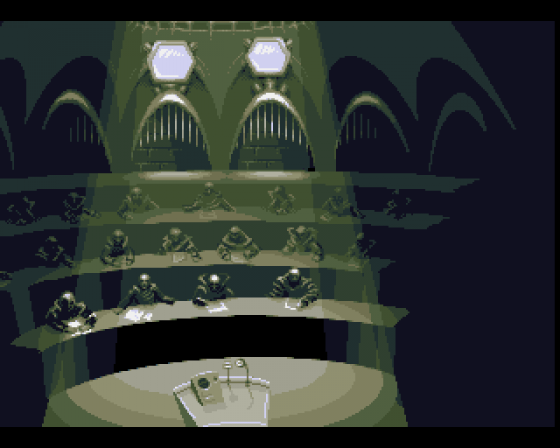
This heavily advantageous weighting of numbers is a serious flaw in a game of chess-like tactics (how good a game would chess be if a roll of a die decided if a pawn defeated a Queen or not?), and watching your carefully-planned strategy disintegrate into a losing lottery entry is a sure way to see the game dispatched to the back of your software shelf at great speed. Hard games I can handle - unfair ones, no.
Unless you're a compulsive gambler, I can't see this one holding much appeal at the end of the day, which is a bit of a shame. There's a germ of a great game here, though - I hope someone has another go at it soon. We're still waiting for the Amiga's Rebelstar, but this is one of the better attempts at a wargame you don't have to be a long-term hospital patient to enjoy properly. Better luck next time, Ubisoft.
The Bottom Line
Uppers: Ridiculously easy to get to grips quickly with, with a brilliant joystick-based control system taking care of almost all necessary input. Looks lovely too, the intro sequence is funny and generally it's nearly there.
Downers: Unfathomable disk accessing on every single turn blows the fast-pace idea apart, as do the mammoth amounts of waiting around for the computer to take its turn on the later levels. Combat seems to be almost totally random, which spoils the whole tactical basis somewhat - this is a game more like Risk than chess, one where sheer weight of numbers is often the key to success.
An enormously promising and brave idea which hasn't quite come off. It's not quite as deep as it might have been or as others would have you believe, but the basic problem is that by the time you really get into it, it's all become so slow and repetitive and unfair that you just want to give up again.


